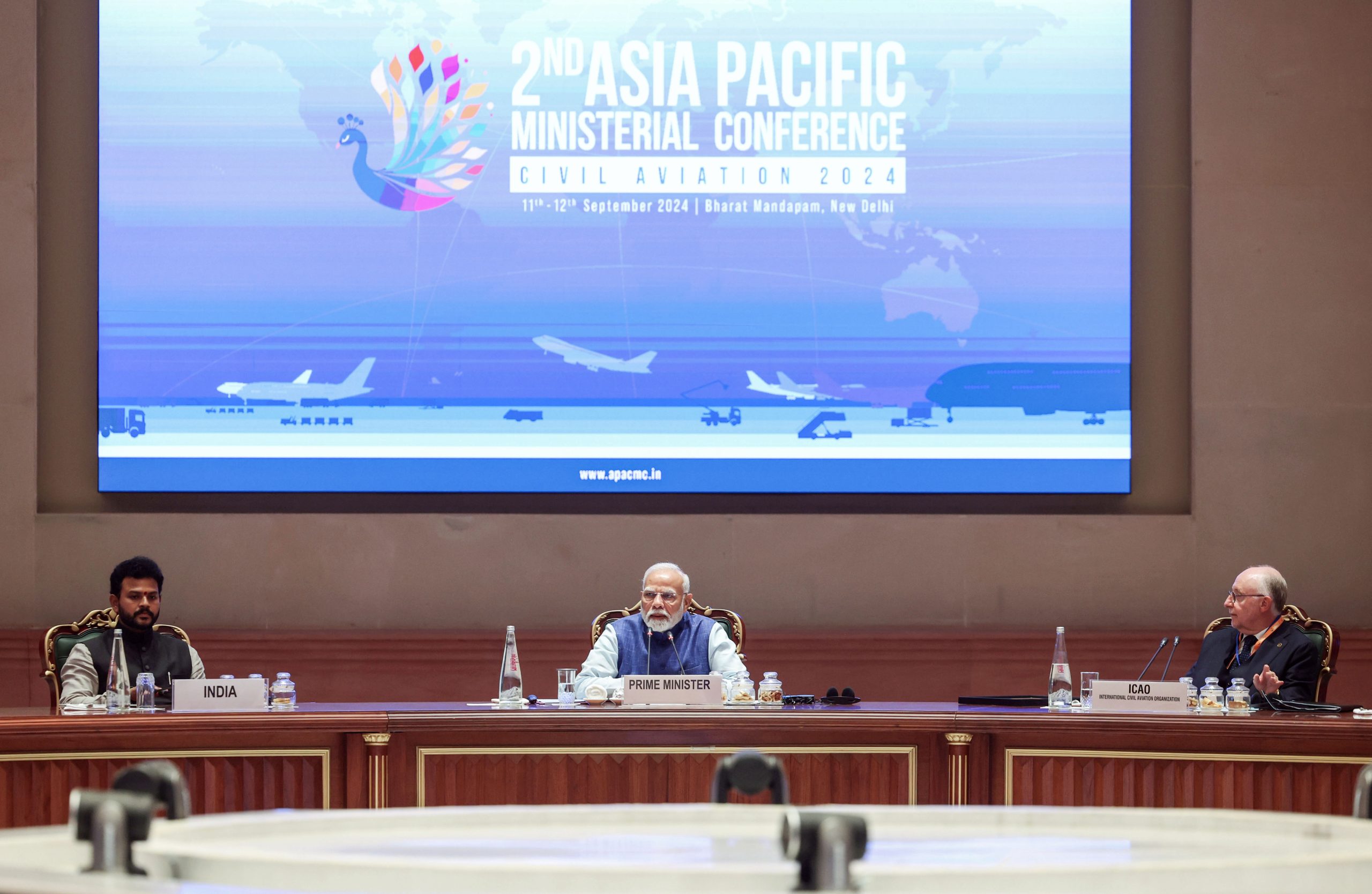The 2nd Asia Pacific Ministerial Conference on Civil Aviation concluded with the unanimous adoption of the Delhi Declaration. The two-day event, held at Bharat Mandapam in New Delhi from September 11 to 12, was hosted by the Ministry of Civil Aviation, Government of India, in collaboration with the International Civil Aviation Organization (ICAO). Prime Minister Narendra Modi announced the passing of the declaration, marking a significant milestone in regional cooperation.
The conference brought together delegates from 29 countries, including ministers, policy makers, and representatives from eight international organizations. Among the key attendees was ICAO, celebrating its 80th year of operations. The high-level event featured discussions aimed at addressing challenges and exploring opportunities within the Asia-Pacific aviation sector.
A major outcome of the conference was the formal adoption of the Delhi Declaration, a comprehensive framework designed to enhance regional cooperation, address emerging issues, and promote sustainable growth in the civil aviation industry.
During his address, Prime Minister Modi highlighted India’s technological and infrastructural advancements in the aviation sector. He underscored the importance of making the sector more inclusive, saying, “In India, 15% of the pilots are women, exceeding the global average of 5%.” He added that India has issued an advisory to further increase this number.
The Prime Minister also emphasized the transformation of India’s aviation industry over the past decade, noting the shift from exclusivity to inclusivity. He stressed the sector’s role in connecting people, culture, and economic prosperity. Additionally, he proposed the creation of an ‘International Buddhist Circuit,’ connecting holy places related to Lord Buddha across Asia, which would benefit the civil aviation sector, travelers, and regional economies.
Civil Aviation Minister Ram Mohan Naidu, in his welcome address, praised the Prime Minister’s vision for inclusivity and sustainability. He referenced initiatives such as the ‘Ek Ped Ma Ke Naam’ campaign, where 80,000 saplings were planted to commemorate ICAO’s 80 years. He also mentioned India’s ambitious goal of establishing 350-400 airports by 2047, positioning the country as a major player in global aviation.
Salvatore, President of the ICAO Council, reiterated the organization’s focus on safety and security, urging continued vigilance despite positive progress in the aviation sector. Minister of State for Civil Aviation, Murlidhar Mohol, acknowledged the importance of discussions on crucial topics, ranging from aviation safety and air navigation to security and green aviation.
Vumlunmang Vualnam, Secretary of the Ministry of Civil Aviation, emphasized that a collaborative approach involving all stakeholders, including international organizations and startups, is essential for a strong future in civil aviation.
Day two of the conference featured a presentation by ICAO on the establishment of the Pacific Small Island Developing States Liaison Office, aimed at assisting smaller nations with aviation challenges. The conference culminated in the formal adoption of the Draft Asia Pacific Ministerial Declaration on Civil Aviation (Delhi Declaration) following ministerial deliberations. Additionally, a ceremony commemorated the 80th anniversary of ICAO and the Chicago Convention, celebrating the organization’s long-standing role in shaping international aviation standards.




















